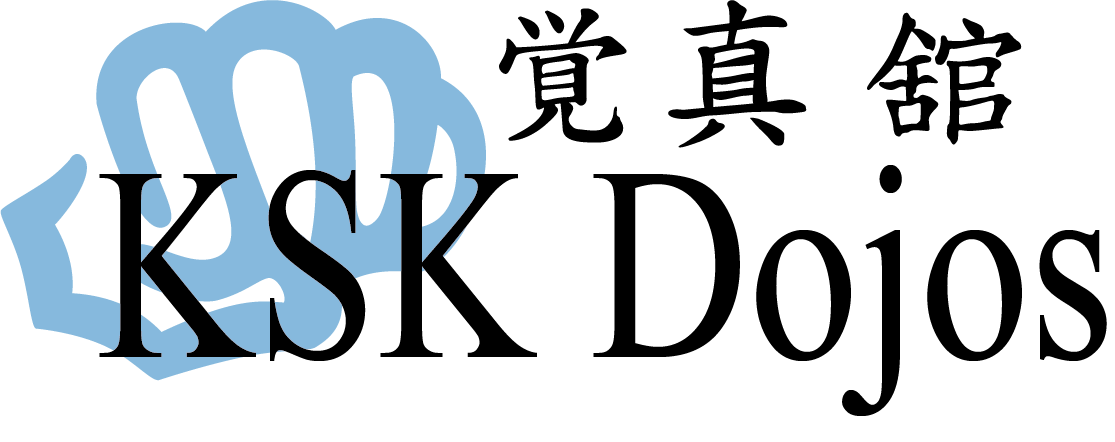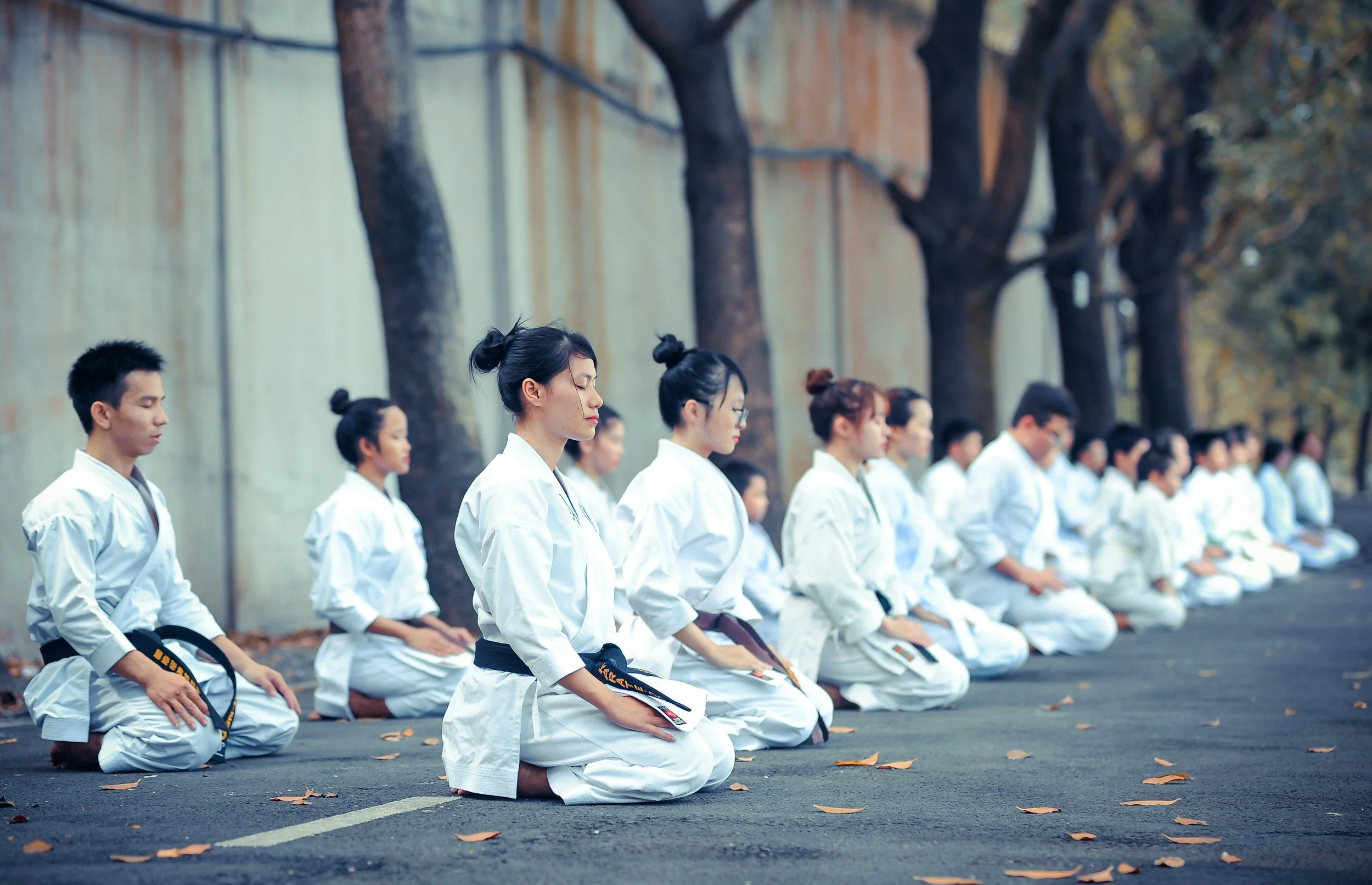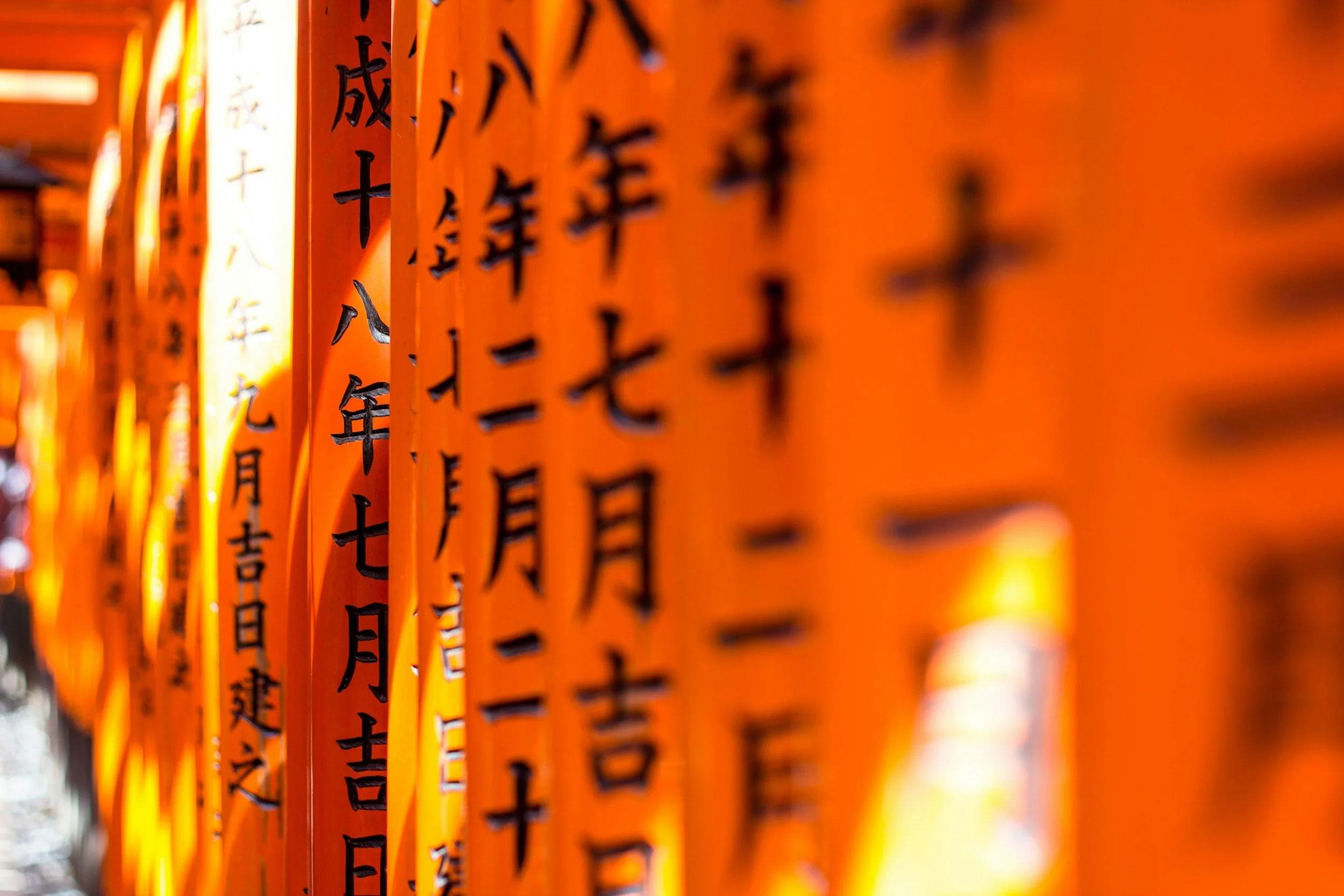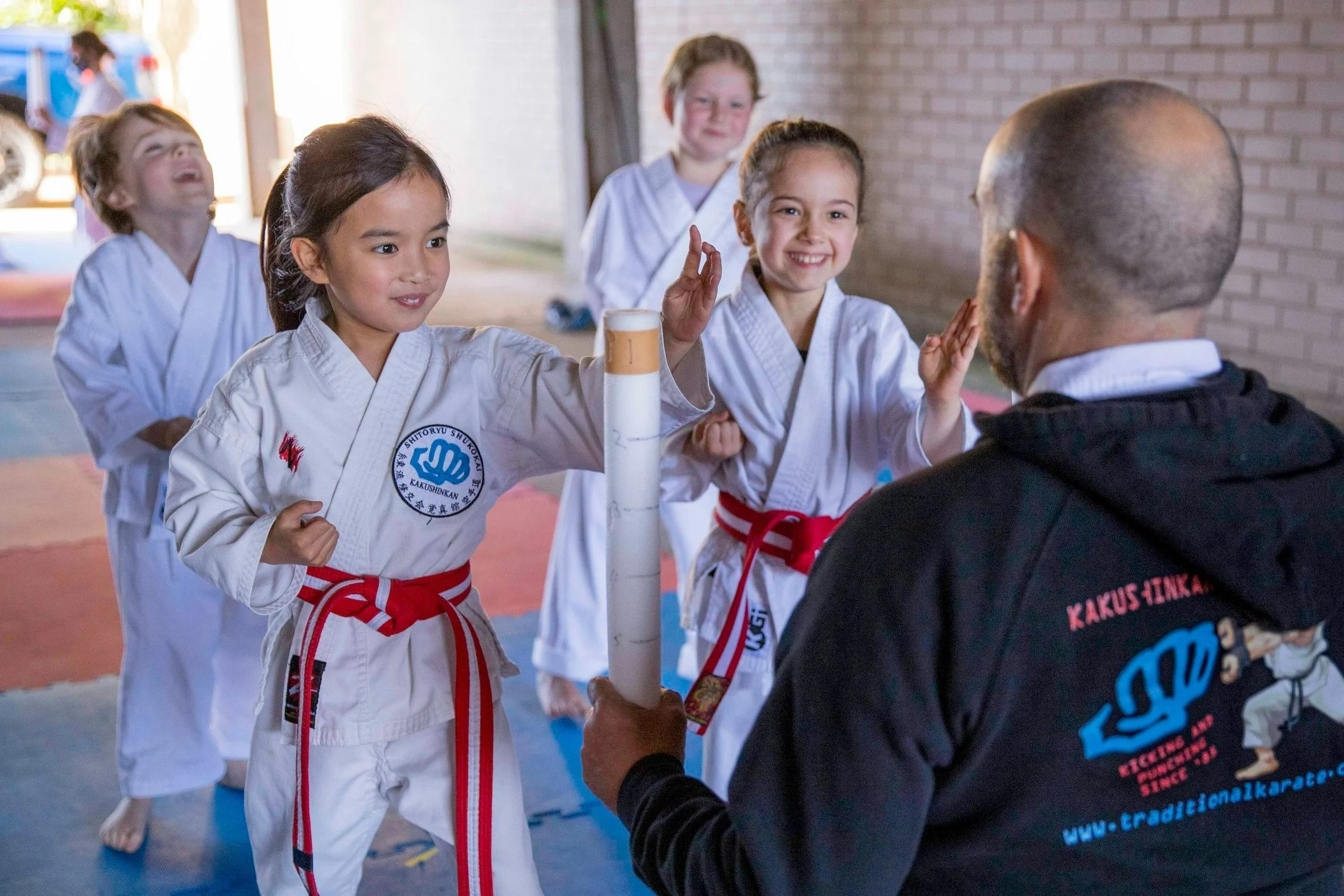7 Things to Know About Your First Karate Lesson
Starting karate for the first time can be both exciting and a little daunting. This guide is here to help you know what to expect before your first class, so you can feel confident and look forward to stepping into our dojo for the very first time. We can’t wait to meet you!
1. Getting Ready: What to Wear and Bring to Your First Class.
Please bring a drink bottle and wear comfortable clothing to exercise in, think activewear or loose fitting clothes. Although you will see our regular students training in their white karate uniforms or ‘gi’, you won’t need any special gear to get started. Also, we train barefoot so you’ll be asked to take your shoes and socks off before stepping onto the training mats. All jewellery such as watches, rings and earrings are also to be removed before training, and any visible piercings that cannot be removed need to be covered with tape.
2. What Happens in Your First Karate Lesson?
Your first Karate Lesson will be about 45 minutes long (although depending which Sensei you have it may go a little longer if they are getting carried away)! Class begins with some traditional bowing to acknowledge the Sensei and clear our heads before training begins. For your very first lesson, you’ll be taken off to the side of the training space for a mini 1:1 session with one of the instructors so they can teach you some basic techniques before joining back in with the main group again.
3. What do you Learn in Your First Karate Lesson?
Your first lesson is focused on teaching you the basics of karate to bring you up to speed so that you can join into the main class as quickly as possible.
Karate Techniques
First you learn how to stand in a karate stance and how to use your hands correctly. You’ll learn what it feels like to punch a pad and how to aim at a target. You’ll learn to balance properly by doing your first karate kick. You will also learn the first three defensive blocking techniques.
Working with a Partner
Working with a training partner is an important part of karate to practice your techniques. You’ll even work with a partner (your Sensei) in your very first lesson! You’ll gain confidence through applying your punches and blocks when working with your Sensei as your first training partner.
4. How to Follow Proper Karate Dojo Etiquette
Karate is founded on respect, discipline and tradition. From the moment you walk into our Dojo you will notice people following certain customs to show respect within our Dojo. It may seem strange at first but will start to feel totally normal after a few classes!
Bowing
There’s a lot of bowing in karate, but it’s not religious, it’s simply a sign of respect. At our Dojo, students bow when entering and leaving the mats. We also begin each class by kneeling for a traditional bow, which includes two parts: the first bow is a mutual greeting between everyone, and the second is a gesture of thanks between students and teachers. Before we begin, there’s also a brief moment of quiet reflection, where everyone is encouraged to close their eyes, take a deep breath, and focus on the class ahead.
5. We Use Japanese Words During Our Karate Lessons
As a traditional Japanese karate Dojo, we speak quite a bit of Japanese language during our classes. Don’t worry though, we still communicate with you in English! Even in your very first lesson you will learn some Japanese words with your Sensei.
Japanese Numbers
During a karate lesson we count from 1-10 quite often as you move through different techniques. We count in Japanese from one to ten and you’ll be surprised how quickly you pick it up.
Key Japanese Words
Here is a short list of some key Japanese words that you may come across in your very first karate lesson, and what they mean in English.
Dojo - A safe place for people to come together specifically for karate training
Sensei - Teacher
Sempai - Teaching Assistant
Rei - Bow
Osu - An acknowledgement like saying “ok”
Yoi - Ready
Kiai - A concentrated shout
6. We Play Games at the End of our Junior Karate Classes
To finish off a hard lesson of training, we let the kids play a game, usually poison ball, as a bit of fun. On a deeper level, even a simple game like poison ball teaches valuable lessons, such as how to cope with losing, show good sportsmanship, work as a team, and manage emotions under pressure. It’s a chance to end the session on a high note while still reinforcing the values we strive to build through our karate practice.
7. You Will Be Challenged
There is no better way for kids and adults to be incrementally challenged and experience the deep sense of accomplishment that comes with learning a new skill, mastering a technique or doing something you never thought possible. Traditional Karate is very structured; not just in what we teach, but how we teach it, with clear progress marked through the belt grading system. From your very first lesson to your last, there is always something new to learn and opportunities for personal growth. That ongoing journey of improvement is one of the most rewarding parts of karate and what makes it such a fulfilling and beneficial lifelong practice.





